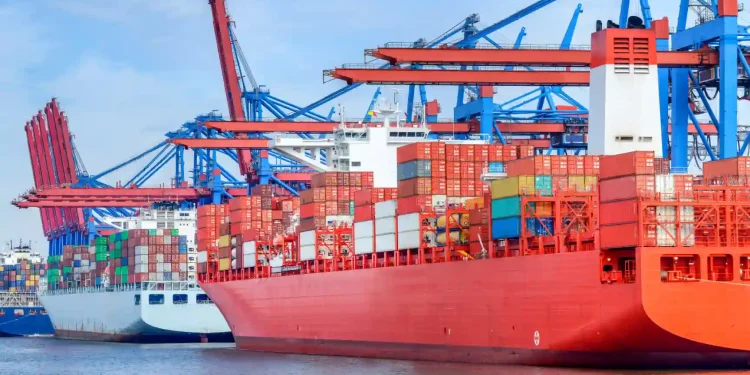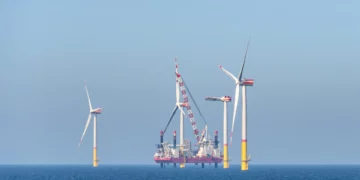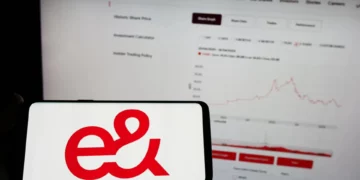The International Maritime Organisation (IMO) has promised to accept new global shipping emissions targets to keep global warming under the prescribed limit of not more than 1.5°C (2.8°F) by 2050
The International Maritime Organisation (IMO) has promised to accept new global shipping emissions targets to keep global warming under the prescribed limit of not more than 1.5°C (2.8°F) by 2050. These temperature limits, which are in tandem with the Paris Agreement, held back in 2015. They agreed to this recently increased pressure for reducing the carbon footprint at the maritime environment protection committee meeting last week.
In 2011, IMO tried to reduce carbon emissions which was far from successful. Last week’s promise invoked previous targets and had a deadline to meet net-zero carbon emissions by the mid-century. This United Nations-backed agency is the de facto regulator of the global shipping industry and lacks the spine to pledge to net zero. It is a troublesome task as the target can only be met when there is no release of greenhouse gas; looking at the present number of crude consumption of shipping vessels, it will be quite challenging.
IMO has put forward its strategy to move towards meeting the target. They have agreed to set up “indicative checkpoints” that aims at the reduction of the carbon intensity of shipping fuels by almost 20% by the end of this decade. These will be in comparison to the levels they decided way back in 2008.
Carbon intensity is the number of pollutant gases produced per cargo relative to the distance traveled. The strategy document consisted of an aimed reduction of 30% by 2030 and an 80% decrease by 2040. It also stated that net zero fuels would comprise 5% of the energy mix consumed by the shipping industry until 2030.
Environmental and climate change activists have raised questions about the viability of the targets announced. They have termed the strategy as vague and weak. World Wildlife Fund (WWF) activist Mark Lutes said that the shipping industry regulator had abandoned the industry with targets and measures of the course pertaining to the intensity required to meet the presented target of net zero emissions. Some Pacific Island member states of the organization highlighted that to be consistent with the net zero emissions targets by 2050, a reduction of 36% should be agreed upon by 2030 and a probable decrease of 96% by 2040.
Freight pollution
The shipping industry accounts for more than 90% of the volume of global goods trading. For transportation of such a high volume of goods requires large vessels that consume near about 300 million metric tonnes of dirty bunker fuel annually. This releases more than one billion tonnes of carbon dioxide into the atmosphere, equal to 3% of the global greenhouse emissions.
As per recent data reports, the emissions from the shipping industry have surged to 10% from 2013 to 2018. This is the exact opposite of the promises made by the committee. This industry, in particular, is slower than other modes of transport like roadways in addressing the ill effects of their activities on climate. Road transport has taken steps toward reducing its carbon footprint, but the shipping industry has lagged way behind in curbing its carbon emissions and reducing dependency on fossil fuels. This was also blamed on the absence of necessary regulation in the industry.
After substantial criticism regarding the negligence towards climate impact, the shipping industry has levied taxes in European waters for their share of pollution. Ships travel vast distances and cover several jurisdictions. This makes it a complex affair to impose regulations. But times have changed, and the industry was included in the European Union’s emissions trading scheme in 2024. It is still questionable as to why this taxation wasn’t applied on a global scale.
Companies operating in the shipping space have taken baby steps on their behalf by changing the way they operate. Fuel optimization, onboard solar installations, and wind-powered technologies are some nascent decisions taken to move forward toward reducing emissions.
Maersk, an integrated logistics company, made history by taking the delivery of the world’s first green methanol-powered container vessel on the 10th of July. Another shipping giant, the world’s third-largest shipping company, CMA CGM, had ordered 12 methanol-powered ships in April.
Rasmus Bach Nielsen, the head of global fuel decarbonization at a commodity trading firm, Trafigura, said that the net zero targets by the mid-century are applaudable. This will boost the demand for low-carbon fuels, and by taking care of the carbon pricing agreement, the availability of green fuels can be arranged. This would provide realistic hopes by bringing the industry closer to the targets of the Paris Agreement.

















